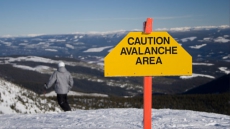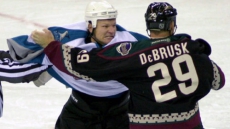MONTREAL — A former Canadian Olympian is finally fulfilling his dream of participating in the Tour de France, 25 years after retiring from competitive cycling — although he won't personally be racing.
Instead, Gervais Rioux's bike company, Argon 18, is sponsoring the Bora-Argon team that has been invited to race this summer in the world's premier cycling event.
The 54-year-old hopes the invitation, worth hundreds of thousands of dollars, will garner attention from 3.5 billion TV viewers and help to eventually triple sales for the 16-year-old Argon 18.
"It's like a seal of approval to be in the Tour de France," Rioux, surrounded by the latest sleek lightweight racers that sell for between $1,500 and $15,000, said recently in the Montreal assembly facility.
Argon teamed up with another upstart company — Bora, a German cooktop and ventilation system designer — on a three-year racing partnership. The Bora-Argon team, formerly called NetApp-Endura, was given a wildcard to participate in the 3,344-kilometre race that begins July 4.
Rioux has hopes for a strong result — to win a stage, a yellow jersey and maybe even end up in the top 10.
The father of two says he methodically developed the Argon brand much like he did in shaping himself into a world-class athlete. Even before retiring in 1990, Rioux bought a Montreal bike shop after competing in the Seoul Olympics.
His plan was to build a bike company with his brother that would one day compete in the Tour.
Today, the firm has 32 employees, selling more than 10,000 bikes a year. Eight per cent are exported primarily to the United States, Britain, Germany and Scandinavia.
That's a fraction of global leaders like Cannondale, Giant and Trek, but a big change from the company's start in 1999 when it sold just 150 units to five customers.
"As a specialty brand, of course you need visibility and credibility to reach that top level, so the Tour de France was always there to me to support the development of the brand," he said.
These days, Rioux is like many middle-aged enthusiasts who cycle up to 2,000 kilometres per year, down from his racing peak of 28,000 kilometres. Rioux estimates that he's put in 350,000 kilometres of racing and training over his 18-year cycling career.
Argon 18 is not the only Canadian entry this year's Tour de France.
Montreal-based Dorel Industries (TSX:DII.B) is once again fielding a team, this time as a U.S.-based squad racing under the Cannondale-Garmin banner. The company said its involvement in pro cycling is a "cornerstone" of efforts to showcase its brand at the world's largest annual sporting event.
The race is a major contributor to selling high-priced road bikes, especially in Europe, said Jeffrey Schwartz, Dorel's chief financial officer.
But he said it can only help if a bike company has the right pricing and distribution.
"The Tour de France is a piece of the puzzle. It's not the piece, it's just another piece that you have to have right."
The popularity of road bikes has grown over the past decade, since the use of carbon fibres made bikes lighter and engineers toiled to make them more aerodynamic. It also saw a shift in production largely to Asia.
In North America, however, the retirement of disgraced cyclist Lance Armstrong has made Tour de France style racing "invisible" to the general public, said Fred Clements of the National Bicycle Dealers Association.
Overall bicycle use decreased 9.4 per cent in 2013, pushed down by declining participation by youth.
"We as an industry have become reliant on baby-boom-aged white males," Clements said, adding that the challenge is to get kids on bikes so they will grow up to be adult cyclists.
After rebounding last year from a challenging 2013, some Canadian dealers see promise in 2015 despite the challenges from a weaker Canadian dollar that is hiking prices and an increase in online shopping, says Anthony Zicha, a Scotiabank analyst who covers Dorel.




